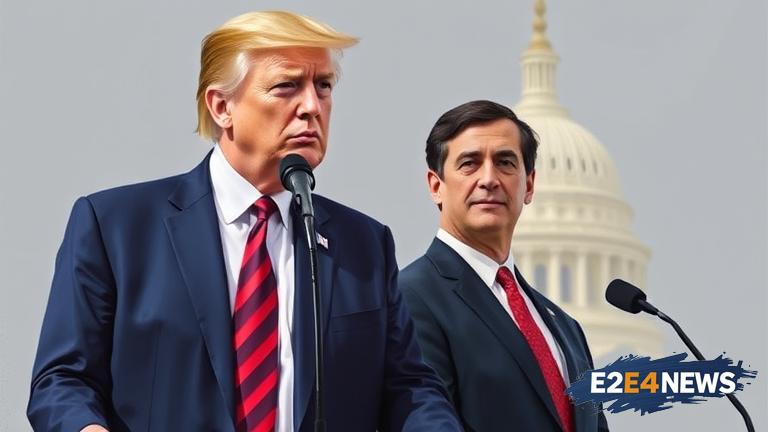Former President Donald Trump has publicly criticized Senator Josh Hawley’s proposal to ban members of Congress from engaging in stock trades, arguing that such a move could have unintended consequences on the economy. Trump’s comments come as Hawley’s bill, which aims to prevent lawmakers from profiting from insider information, gains traction in the Senate. The proposed legislation has sparked a heated debate, with some arguing that it is necessary to prevent corruption and others claiming that it could lead to a loss of investment opportunities for lawmakers. Trump, known for his business background, has weighed in on the issue, stating that the ban could have a negative impact on the stock market and the economy as a whole. He also expressed concerns that the ban could lead to a brain drain in Congress, as talented individuals may be deterred from running for office due to the restrictions on their financial activities. Hawley’s proposal has been met with support from some lawmakers, who argue that it is necessary to restore trust in government and prevent conflicts of interest. However, others have raised concerns that the ban could be overly broad and may not be effective in preventing corruption. The issue has also sparked a discussion about the role of lawmakers in the stock market and whether they should be allowed to engage in trades while in office. Some have argued that lawmakers have access to sensitive information that could give them an unfair advantage in the market, while others claim that they should be allowed to manage their own finances like any other citizen. The proposal has also raised questions about how the ban would be enforced and what penalties would be imposed on lawmakers who violate the rules. As the debate continues, it remains to be seen whether Hawley’s proposal will gain enough support to become law. The issue is likely to be a major point of contention in the upcoming election, with some candidates already weighing in on the issue. Trump’s criticism of the proposal has added fuel to the fire, with some of his supporters arguing that the ban is an overreach of government power. Others have praised Hawley’s efforts, arguing that the ban is necessary to prevent corruption and restore trust in government. The proposal has also sparked a discussion about the need for greater transparency in government, with some arguing that lawmakers should be required to disclose their financial transactions. As the debate continues, it is likely that the issue will remain a major point of contention in the upcoming election. The proposal has also raised questions about the role of special interest groups in shaping the debate, with some arguing that they have too much influence over lawmakers. The issue is complex, with valid arguments on both sides, and it remains to be seen how it will play out in the end. The proposal has also sparked a discussion about the need for greater oversight of lawmakers’ financial activities, with some arguing that the current system is inadequate. The debate is likely to continue, with lawmakers and experts weighing in on the issue. The proposal has also raised questions about the potential impact on the economy, with some arguing that it could lead to a loss of investment opportunities. The issue is likely to be a major point of contention in the upcoming election, with some candidates already weighing in on the issue. The proposal has also sparked a discussion about the need for greater transparency in government, with some arguing that lawmakers should be required to disclose their financial transactions. The debate is complex, with valid arguments on both sides, and it remains to be seen how it will play out in the end.
